The Infinite Timeline wrapped up in 2024 with SINGULARITY, the final novel that pulled together twelve previous books—nine standalones and three crossovers—into one mega-crossover brain-melter. This isn’t a sales pitch for the series, I promise. But when readers finished it, I started getting variations of the same question over and over:
“What is up with your brain?”
I also got called a “savant.” A couple times: “idiot savant.” Charming.
The questions got louder when I revealed that I didn’t outline any of the Infinite Timeline. No plot notes. No spreadsheets. Just… vibes and memory. The settings. The plots. Dozens of character arcs and voices. All woven together in the final book, mostly from what I could remember. A few things slipped through the cracks, sure, but not much.
Cue the DMs, emails, and comment section theories. “Why is your brain so different?!”
And that got me asking two questions of my own:
- Is my brain different?
- If so… why?
The Diagnosis I Didn’t See Coming
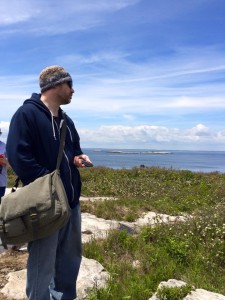
My big satchel of support, full of all the things I need to make me feel like I can handle the world.
The answer to #1 was easy. Yes. In so many ways, yes.
If you’ve followed me for a while, you know I’ve wrestled with an assortment of baffling issues: anxiety, depression, nerve pain, sensory overload, mysterious neurological symptoms, and a wild imagination that rarely shuts off. No one could figure it out. Treatments helped sometimes—but mostly just dulled the symptoms. I didn’t feel better, just muted.
Then one day, while discussing all this with my wife, she said:
“Maybe you’re autistic.”
Me?! Autistic? What are you talking about? Like Rain Man? Like that screaming kid from Mercury Rising? My impression of autism came from movies or from my wife’s time caring for people with severe disabilities—some were Level 3 autistic individuals who needed a lot of support. I had a narrow, biased view of what autism looked like. Odds are, you do too. So at first, the suggestion didn’t just surprise me. It offended me.
But I’m not the type to ignore a lead. So I followed it. Took every online test I could find, including a 150-question diagnostic screener.
I scored a 147 out of 150.
My wife took the same test: 31. Huh.
I brought this to a psychiatrist. He barely blinked before confirming: “Yep. You’re autistic.” That answer came so fast it felt flimsy. It left me with imposter syndrome. Couldn’t really be autistic, right?
So a year later, I went through a full diagnostic evaluation.
Same conclusion: Autistic. Also ADHD. Also anxiety, depression, C-PTSD, and Somatic Pain Disorder—likely from a lifetime of hiding traits I didn’t know I had. (It’s called masking, and it’s exhausting.)
Suddenly, Everything Made Sense
I’ve always been autistic. I just didn’t find out until I was fifty. FIFTY!
That single fact unraveled everything I thought I knew about myself. And it explained so much.
• My sensory issues? Autism.
• My panic attacks and somatic pain? A combo of autism, Lyme disease, and Bartonella—meaning my nervous system goes full DEFCON 1 during emotional or physical stress. But not just any stress—other people’s stress.
• Can’t hold eye contact? Autism.
• Perfumes and other strong smells trigger migraines? Autism.
• Small talk makes me want to jump out a window? Autism.
• Never been able to work a traditional job for more than a day? Guess what.
The list goes on and on and on. With this lens, my whole past clicked into focus. Childhood struggles. Awkward social stuff. Creative highs. Emotional crashes. So many of the questions that haunted me—especially the ones starting with “Why”—finally had answers.
But You Don’t Seem Autistic
This is often the toughest part for late-diagnosed autistic people. I’ve gotten really good at acting “normal,” known as “masking”. But it takes work. A lot of work. I’m drained after even short social interactions. Since I was a kid, I’ve practiced smiling in the mirror so I don’t look angry when I’m actually happy. (My resting face says “serial killer,” even when I feel great.) I replay conversations in my head to make sure I sounded natural. I rehearse jokes before saying them out loud.
Point is: masking takes effort. I’m basically Val Kilmer in The Saint.
Constantly monitoring my behavior, stims, the way I speak, and the faces I make takes a toll—and for me, it led to what I now know is called autistic burnout. But this isn’t your standard “I need a nap” kind of burnout. It’s debilitating. It fries your brain and body. In my case, it showed up as somatic pain—actual, physical pain (with no physical cause) triggered by prolonged stress or exposure to other people’s emotional overload. If someone’s angry, venting, or spiraling, my body absorbs it like a sponge and reacts by subjecting me to weird and excruciating pain. Sometimes I’m bedridden for days.
I’ve been living with this for over ten years. Only now am I beginning to truly understand what causes it—and what changes I need to make to avoid it without relying on medication.
When I shared my diagnosis, some people were surprised. Maybe you’re surprised, too. But to my wife, my kids, and a lot of close friends, it was obvious. The most common response I got? “No duh.”
There were a few people who didn’t believe me. Family members who see me once or twice a year think I’m the life of the party—which, cool, I want them to think that. I don’t want to be a Debbie Downer. But a little explanation and understanding goes a long way.
My only regret in telling people is that my mom didn’t believe me—and she passed away before we could really talk it through. So if someone comes to you with an autism diagnosis, even if they seem outgoing, funny, or “normal,” listen. Take the time to understand their experience. Odds are, it doesn’t match the stereotype you’ve been carrying around.
It’s important to remember that my autistic experience could be very different from someone else’s. Imagine autism as a soundboard with a hundred sliders, each one representing a different trait or symptom. For me, the sliders for sound, sight, touch, and scent sensitivities are cranked way up. For someone else, those might be all the way down. That’s why saying someone “doesn’t seem autistic” doesn’t really make sense—every autistic person has a different configuration.
Autism in the Real World (and Hollywood)
It also helped me understand some of my professional roadblocks.
My dream job? Directing a movie. I love writing, but I’m also obsessed with visual storytelling and music—movies are the full package. But directing? That means being social, expressive, and charismatic. You’ve got to show enthusiasm, play the game, work the room.
Autism makes all that hard. I’m introverted, verbally awkward, and my ‘excited’ face apparently looks like a guy contemplating the abyss.
At RobinsonFest this year, I stood on a pirate ship (yes, really), looking out at all these amazing people laughing and having a great time. I felt proud. Happy. Grateful. Then someone asked, concerned, “Are you okay?”
Yeah. That was my happy face, and it made people concerned for my well-being! Too funny.
In Hollywood, not being able to fake normal excitement for the duration of an hour-long meeting doesn’t fly. They might love your script and your writing, but if they don’t also love you, you’re toast. I’ve had meetings with some of the biggest producers in Hollywood, all of whom loved my screenplay adaptations of HUNGER, THE DIVIDE, and POINT NEMO. But after talking to me? Poof, they’re gone. And I can feel the shift as my mask begins to slip, and despite feeling true excitement, I fail to show it in a way that makes sense. Happens over and over. I can fake the game for a bit, but the toll is heavy.
And so, I’m just a writer. A very happy, solitary, stay-in-his-office-every-day kind of writer. I emerge twice a year—for RobinsonFest and for Free Comic Book Day—and that’s about my social limit.
Would I Trade It?
With all this new insight, I asked myself a final question:
If I could stop being autistic—be “normal”—would I?
Autism has caused me pain. Isolation. Burnout. Missed opportunities. A decade of somatic agony and panic attacks. And yes, the inability to charm my way into Hollywood.
But it’s also given me hyper-creativity, intense focus, and a career as a wildly prolific independent author. It’s how I can write a chapter in two hours with no preparation. It’s how I built the Infinite Timeline from memory. It’s why in the next two years, I’ll be releasing six novels and five graphic novels, all the while working on NEW screenplays—because I don’t give up.
So… would I trade it?
Hell no. I like my weird brain.
I like thinking sideways. I like how my mind works—even if it hurts sometimes.
My only regret, and it’s a big one, is not knowing sooner. I could’ve spared myself—and the people around me—a lot of confusion, pain, and guilt. I could’ve gotten help. I could’ve stopped blaming myself for things that were never my fault.
If You Suspect You’re Like Me
If anything in this resonates—if you suspect you might be autistic—take a few online tests. See what they say. That’s how it started for me. For kids, too, earlier is better. Diagnosis doesn’t solve everything, but it brings clarity, and sometimes relief. And that’s priceless.
Downsides? Sure, some people still carry outdated ideas about autism. But if someone thinks less of you for being neurodivergent, they’re not your people. Let ’em go.
Understand your brain. Ask for what you need. And if someone mocks you for that?
Hasta la never, dingus.
I’m still writing books. Still making comics. Still chasing that Hollywood dream—quietly, awkwardly, but relentlessly. I’m focused now on unmasking, reducing stress, and avoiding burnout. For the past six weeks, I’ve been pain-free without meds, and honestly, that’s a miracle.
To my fans: thank you. You’ve supported me without knowing the full story, and now that you do, I hope it only makes the connection stronger.
To my fellow autistic folks: own your weird. Learn what makes your brain tick. And don’t be afraid to ask for help. Yeah, it’s hard. But we can do incredible things—and often in ways no one else can.
Thanks for reading.
—Jeremy


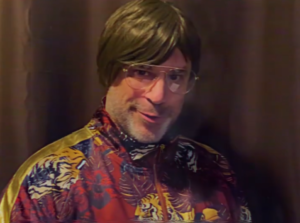
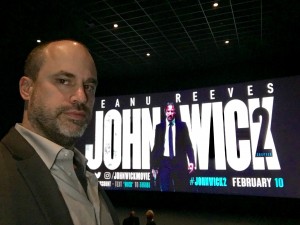

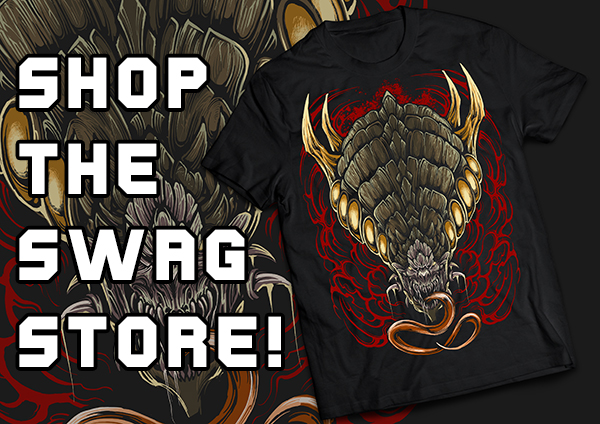
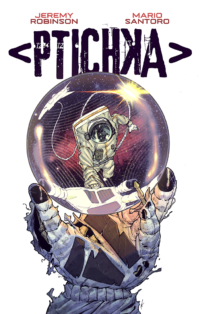
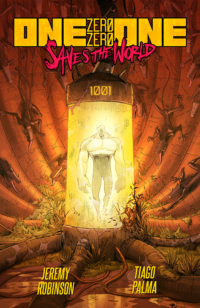

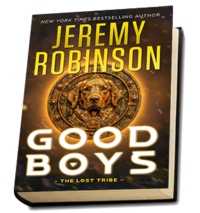
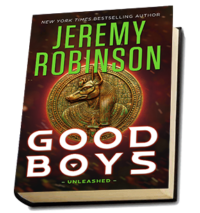
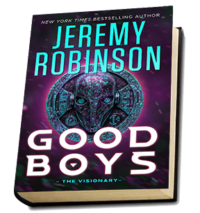
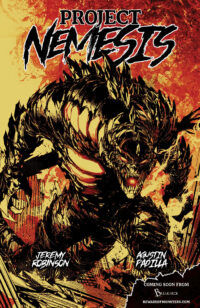
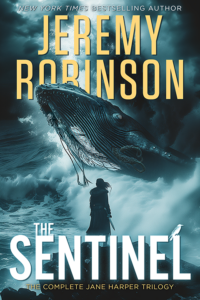
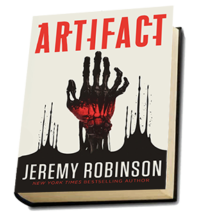

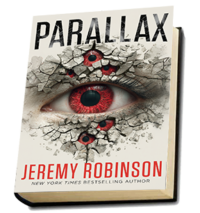
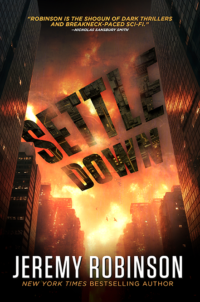
Wow just wow! You’ve been carrying a heavy load for a long while. Your description of a sound board seems right on. My 16 old grandson lives with me and I have suspected for awhile that he is on the spectrum. His dad does too. He was tested when he was four and it came back as borderline, but the doctors don’t live with him and see what we see. I’m very glad you have a diagnosis and an answer. Must be a big relief for you to have more control of that awful pain. We are the ones that benefit from your brain and hopefully now you can enjoy it more too. Sending lots of love to you, take care, Valerie
Thanks! Understanding the pain and how to reduce or stop it is a game changer. You could always take some online tests with your grandson. Maybe he’s shifted in one direction or the other since he was four? This page has some good ones. https://embrace-autism.com/autism-tests/
Honestly, I assumed you were autistic. Definitely, ADHD and the anxiety you had shared previously is often best friends with those two buddies. I really appreciate you sharing your story and the path to discovery. I have always assumed my tendency to “feel” everything was an empathetic trait but over the last few years I have begun to suspect I too am autistic. If you ask people who have had the rare opportunity to spend time with me they would describe me as the life of the party. However they have no idea how much I stressed prior to the encounter or the hours I ruminated after wondering if I said or did the right thing. I avoid face to face encounters like a rodent hiding from a cat. I have directed my intense focus on education, I am always enrolled in some course despite having 5 degrees. I always have an idea notepad on hand, flit from project to project, find pleasure in crossing things off lists and multiple other tasking activities necessary to maintaining my mental equilibrium. I hope knowing there is an explanation to that which seemed unexplainable permits you to accept what we all know. You are exactly who you are meant to be. And based on the comments you truly have gathered a tribe of likeminded individuals.
Well said and owned! Congratulations on your “coming out”! Masking is boring. We’re way more interesting and happy when we’re comfortable in our own skins. Definitely not other folk’s skins. Er, something
I dunno, I kinda like wearing other people’s skins as I do my little kookie-dance
I’m keeping an eye on you and Nicholas…
“I was as shocked as a rhino waking up because a park ranger was giving him a suppository” I’m surprised and happy that you do the Robinson’s fest But it explains where a lot of these fun little quotes and sayings come from in your books. I’m sure you don’t want us to be anything but who we are, that being said, is there some advice you could give to us to make sure we’re not doing anything to make you feel uncomfortable?
I’ve learned that when I see absurd quotes like that, it’s probably something I wrote. Lol. As far as helping me feel more comfortable? Don’t wear perfume! Lol.
Good boys book 2 is where that quote is from I laugh every single time. I hear the word rhino or see a rhino. Thank you for that.
I can totally relate and share many of the same issues. However, I do not have your extraordinary talents. I commend you for putting yourself out there. At the end of the day, we have to accept who we are, all the good and the mess too.
Thanks, Mary!
One of the things that can let us slip under the radar for so long is that if you complain to family that you’re having these struggles compared to your peers you get “But that’s normal! I do that!” and you end up gaslighting yourself and doubling down on hiding your weirdness when you’re in the neurotypical world on your own because no one else seems to get it.
Congrats on your diagnosis though <3
You've already pretty much written many books with experiences of characters with neurodivergent traits (it's why I love your books and they're all so relatable) but I'm curious if you're thinking of exploring something more literal with being autistic/adhd now you know what's going on? There's not a lot of media that really accurately portray characters or the experience of being Autistic/ADHD that openly declare it.
Yeah, even now after a diagnosis, the most common response I get when I try to explain is, “I have that too!” Then I have to explain the vast difference between the normal experience of X and the autistic experience of X. They’re often night and day.
As for tackling autism head on in a novel… You can pre-order it now. It’s impending release is part of why I’m talking about this now.
https://bewareofmonsters.com/artifact-by-jeremy-robinson-3/
Hey Jeremy, just finished reading this. You are right. I see me in some of your comments. Super introverted. If I’m invited anywhere, I pick where I will go if I feel it will be easy to escape. A friend just recently told me how I tend to zone out with too many people around me. I will just get up and leave. I usually have several projects going at one time. Knitting, cross stitch, reading, making jewerly, gardening. I feel like I’m wasting time if I’m not busy. And quiet…I was known as the quiet girl in class. I had a lot to say, but felt like I would be laughed at…so I said nothing. Co-workers have accused me of being mean because I look at them a certain way…huh? Anyhow, I get it. My grandson and granddaughter are both diagnosed autistic. Both smart. Grandson also ADHD. He is 17. He has been taking college courses in history up to 1600s. This summer it will be 1600 to 1900. He’s a computer wiz. When he was younger he would, on computer, set up maps and have wars…unbelievable how he would strategically have battles…anyhow, I’m getting boring…I am 77 now, never even thought about autism…never even heard about it back then. I was me then…still me now. Your books are wonderful… I’ve read pretty much all of them…I didn’t read the cowboy ones. Honestly, the infinite timeline and the books that followed just make me want more. Hunter, Sentinel, Good Boys…so good! Artifact, wow! That definitely needs at least one more book!!!!! And 30SEVEN…no words!!! Wow! I’m not a talker but I can speak on paper!!!
Found you “via” R.C. Bray on Audible… I’m onto the Infinite Timeline saga (starting Flux now) and excited to fall in the rabbit hole.
So I wanted to know something more than the name of the author and stumbled here…
Just read this post after the emotional climax in The Others so it has been quite a ride: I feel for you and the struggles you’ve been through and I’m happy you now have an explanation and that you embraced who you are.
Looking forward to go through your work!!
Thank you!! Glad you found me. 🙂
Hey JR. I just read your article and am glad to hear that you have been able to answer some questions and and are on the path to, “own your weird.” I have been reading your books for years (hooked when I read The Didymus Contingency) and have enjoyed them all. I am a HUGE fan of Good Boys and have already read that series twice (well, read once and listened to the Audible series once – Kudos on selecting Tom Taylorson btw, he’s perfect.) My son recently graduated college and, while there, started asking himself some of the same questions you asked. As his Dad, I’m glad you wrote the article because it helps me to understand a little better. Thank you for that and for all the crazy that has entertained me for years. You are truly one of a kind.
Hi Jeremy, I have two autistic kids and love your books. Thanks for doing what you do! Inspiration for sure.
– Dude who occasionally writes songs inspired by your books – Ethan
Jeremy, you are an amazing person and certified bad ass.
Jeremy,
Your personal story of your lifetime struggle through these undiagnosed symptoms really moved me. You gave gave me some insight into what others may be going through, and the dangers of making assumptions. I’m a retired 65 year old man who has loved science fiction and horror since I was a kid, and you are my all time favorite author, having read 50+ of your books to date. I feel somewhat guilty that your pain is our gain, but sir, you are perfect! Keep writing because I don’t want to catch up to you! Love you man.
Thank you for posting this! And honestly, I’m not surprised. I’ve been a devoted fan of your for years. In the last 2 years I’ve also been diagnosed with autism and ADHD (sometimes expressed as AuDHD). I’m a 45 year old woman (and man, does that throw in even more complicating factors for the expectation of how autism “looks” ) and I follow a lot of content creators with similar experiences that are trying to get more voices out about what these things can really be like. Also the slowly advancing research in these fields. Overall, like you, I say the validation in knowing you’re a normal zebra when you thought you were a broken horse your whole life is one of the most valuable things in the world.
Thanks for this, and your awesome books of course!
Your tale is a very relatable one, from my own childhood as well. Though I apparently unconsciously found a way to tone it all down, it’s taken a lot of the creativity with it too.
That trade off is something I’ve only recently grown to realize (also at 50). Not sure at all if it’s what I would consciously choose to do, knowing what I known now.
So good for you on finding ways to manage the downsides while keeping the uniqueness alive.
I just going to say that I am happy that you followed up on that lead and got a diagnosis that has led to you feeling better. Me and my daughter love your books, we listen to them all the time on the car. Your stories have given us something great and fun to have in common and that is priceless. Of course, she loves the Demon Dog and Maigo. We also think that Infinite saga is a master piece. Hope you continue feeling better. Remember that recovery sometimes is not a straight road, but it seems like you will get there in record time. Keep that wierd brain healthy and rested, and thank for the stories! =)
Don’t worry my dude! Your weirdness is what makes U you. You will discover there are a lot of people just like you being diagnosed with Autism later in life. I’m one of those weirdos.
Technically, I was diagnosed with ADHD at age six in the late 80s. I used to call myself a guinea pig because of all the side effects I got from taking Ritalin for 14 years. Something my parents can’t take back – my child brain should have learned to grow n learn without the mind-numbing drugs.
I’m 44 now buuuut confirmation was in 2017 during my 2nd round of college at a psych class. After comparing the Autism behaviors to my childhood it started to make sense. I started to do alot of research and after a pro diagnosis they confirmed my ASD. It kind of all started making sense. My relationship with friends n family. My struggles with keeping jobs etc. I’ve had to fake my way at socializing thru sarcasm and making jokes. It’s a coping mechanism. Maybe if I could do it all over again, I would have tried to be a comedian. But sadly the time machine was lost back in ancient Egypt. I take a medication but it’s mild dose so i’m in the happy medium.
Side Note: after going through all that, I found out that my mother knew about my Autism. She claims I was diagnosed at 14. Plot twist! (Enter Dramatic Music-Dat Dat dum!) The problem is… ♀️I don’t remember getting diagnosed. I was probably going thru puberty and still on the Ritalin at the time.
Sooo that might have been my other personality who remembers and she’s not here anymore. I’m happy with myself now. Stay weird! Oh and Demon Dogs Rules! Bree needs Her own book.
“Today you are You, that is truer than true. There is no one alive who is Youer than You!” – Dr Seuss.
I also highly recommend you read “Look me in the Eyes.” biography By John Elder Robison. Who was diagnosed with ASD at age 40. Or Temple Grandin, another author/inventor who talks about growing up with Autism.
I have just finished “Artifact”. It’s the first of your work that I’ve had the pleasure–or, let’s call it the experience–of reading. I was drawn by your cover art, and totally hooked by your dedication. Once I started reading , I hardly put it down! I realize I’m a latecomer to enjoy your wildly varied and prolific contributions, however, I believe that greatly enhances my enthusiasm for more! So, thank you, Mr. Robinson. Well done!